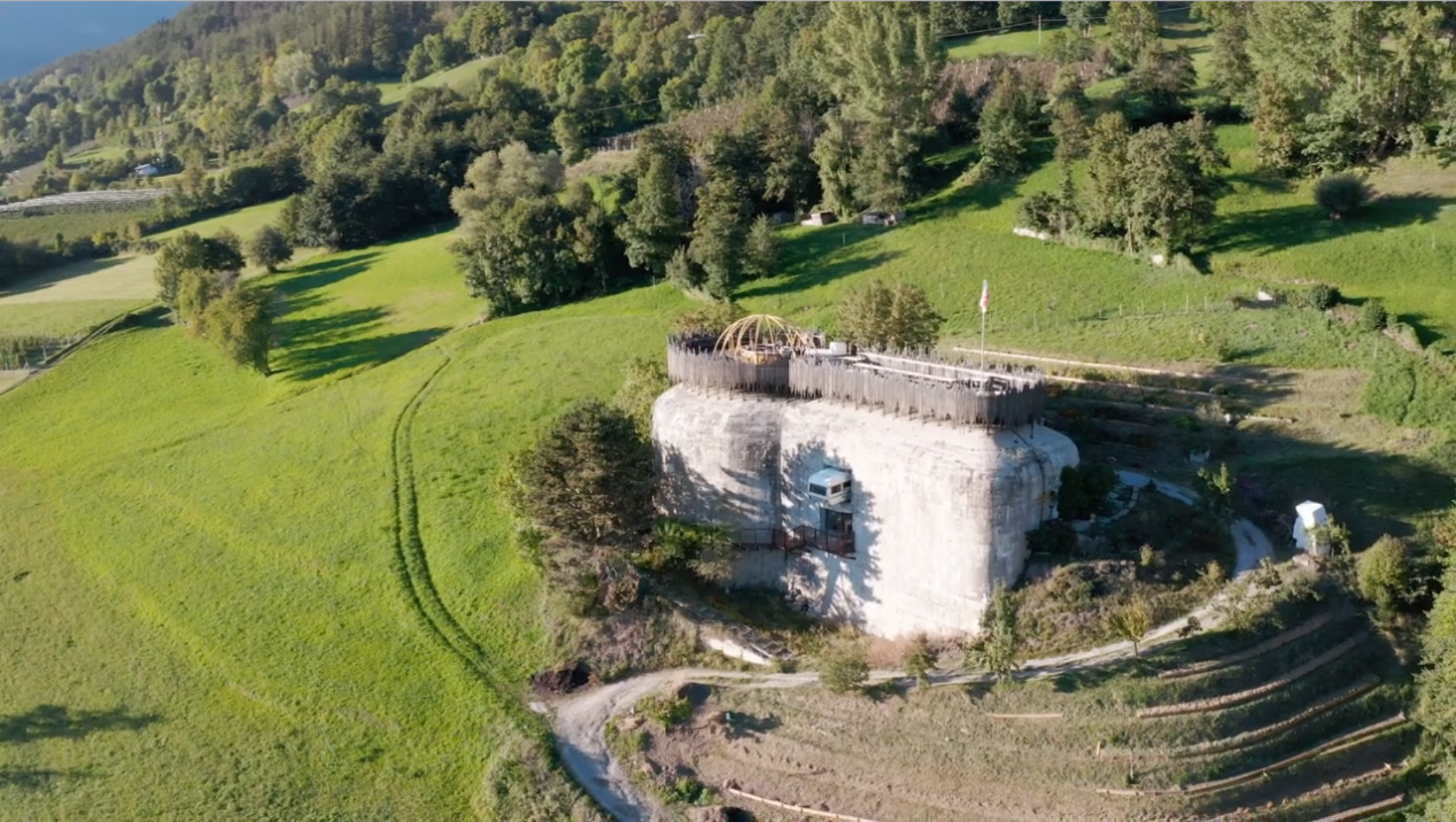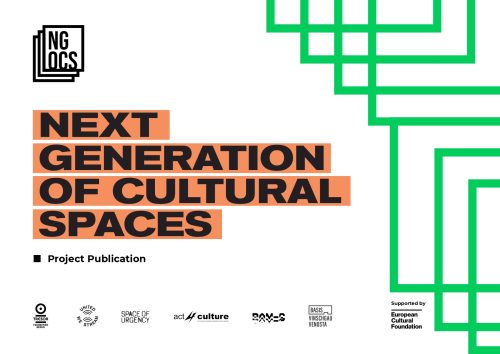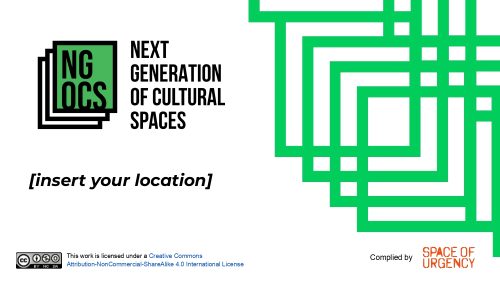
Next Generation of Cultural Spaces
The Next Generation of Cultural Spaces (NGOCS) creates a translocal artivist alliance between Berlin, Tbilisi, Sarajevo and South Tyrol to reimagine the use of historical spaces, reviving them through cultural activities to create safe spaces where non-dominant youth culture, queer communities and other marginalized groups in Eastern & Southern Europe can thrive.
NGOCS is a project by Space of Urgency, Tresor Foundation, United We Stream, Act4culture (CCIU Georgia), Basis Vinschgau Venosta and Bam-C (Balkan Advanced Music Conference). Throughout the year 2022, the project is supported by the European Cultural Foundation.
More info on: www.nextgenofcultural.space
This report tells the stories and experiences of the NGOCS project team, as well as those of the spaces and communities touched by the project. It provides a glimpse into the journey towards enabling space, including the challenges and opportunities encountered along the way.
We feel this is only the beginning of our exploration of how to provide the necessary know-how and information to emerging spaces and communities in geographically and politically diverse settings. We aim to provide the resources needed to build more stable environments for value creation and thriving, non-dominant youth culture, queer communities and other marginalised groups, because these spaces and communities constitute the future generation of culture.

This living document is made for cultural collectives in Southern and Eastern Europe that have an own independent space or aim to obtain an independent space for non-dominant culture.
We aim for you to download and modify this document to your needs. It can be used to present your space or concept to the outside world, especially to local administrators, property owners or potential funders.
As a living document, it is to be regularly edited, updated and expanded with new information and templates. The goal is to provide an increasingly effective tool that can strengthen existing spaces and support obtaining new spaces for independent non-dominant culture.

PROJECT GOALS
- Bring together a translocal network of Southern & Eastern European initiatives and spaces for non-dominant culture, changemakers, advocates, academics, institutions and local governments.
- Create a direct local impact on the independent cultural ecosystems in Tbilisi and Vinschgau Venosta.
- Document the processes so that it can be developed into a bigger, thriving network that supports the development of the next generation of cultural spaces.
CHALLENGES
Imperialism, authoritarian governments and right-wing extremism are on the rise, evidenced by violent attacks on queer communities with casualties in the Tbilisi, Kiev, and Belgrade Pride events 2021. Besides these aggressive acts, the pandemic has led to closure of our cultural spaces and disruption of creative ecosystems that have served as the last remaining safe spaces for these communities, now posing an existential threat for the underrepresented.
PROPOSED SOLUTIONS
The NGOCS project aims to build a transnational alliance that supports the local positions of the spaces, e.g. by improving collaboration with relevant stakeholders, rethinking business models and increasing international visibility and solidarity.
APPROACH
- Holding local conferences in each region (Berlin, South Tyrol, Tbilisi), to foster conversations with relevant individuals and strengthen the ties between local collectives and organizations.
- Involving a larger amount of independent cultural spaces and allies from the region in three online community calls to exchange practices and lay a foun- dation for new translocal approaches.
- Converting documentation into a growing living document aimed to support initiatives in the region facing similar hardships, whether economic austerity or extremist intolerance.
ROLE OF SPACE OF URGENCY
Space of Urgency organizes regular community calls with a broad network of independent cultural spaces. The three calls are organized around key subjects related to the project’s theme. They support knowledge exchange, serve a motivational purpose by bringing like-minded people together facing similar challenges within their local environments, and build relationships that lay the foundation for the continuation of the translocal network.
SOU is responsible for the delivery of the public project end report NGOCS publication. We also create a NGOCS presentation, meant to be adjusted and used by cultural collectives in Southern and Eastern Europe that have an independent space or aim to obtain an independent space for non-dominant culture.
OUTCOME
The NGOCS project demonstrates that there is a need to continue translocal alliances. It formulates a strong vision of the next generation of cultural spaces, to be used in collaboration with independent cultural spaces and communities as well as external stakeholders. Additional data collection on the value of independent space for non-dominant culture will make the narrative more convincing for the latter. The project has brought together a large group of social-cultural initiatives, emergent spaces, independent cultural venues, urban changemakers and polit-ical agents. To continue its mission it is important to keep coming together and collaborating, locally as well as translocally.
New digital network structures offer an opportunity to facilitate the needs of initiatives and spaces for access to information and contacts. Local involvement of a translocal alliance is a sensitive matter. It should respect the local context and empower local actors to ‘do it themselves’. Ultimately it must be kept in mind that the goal is to create and preserve independent physical spaces for non-dominant culture. While defining the next generation of cultural spaces, the most important criteria are sustainability and long-term security.











